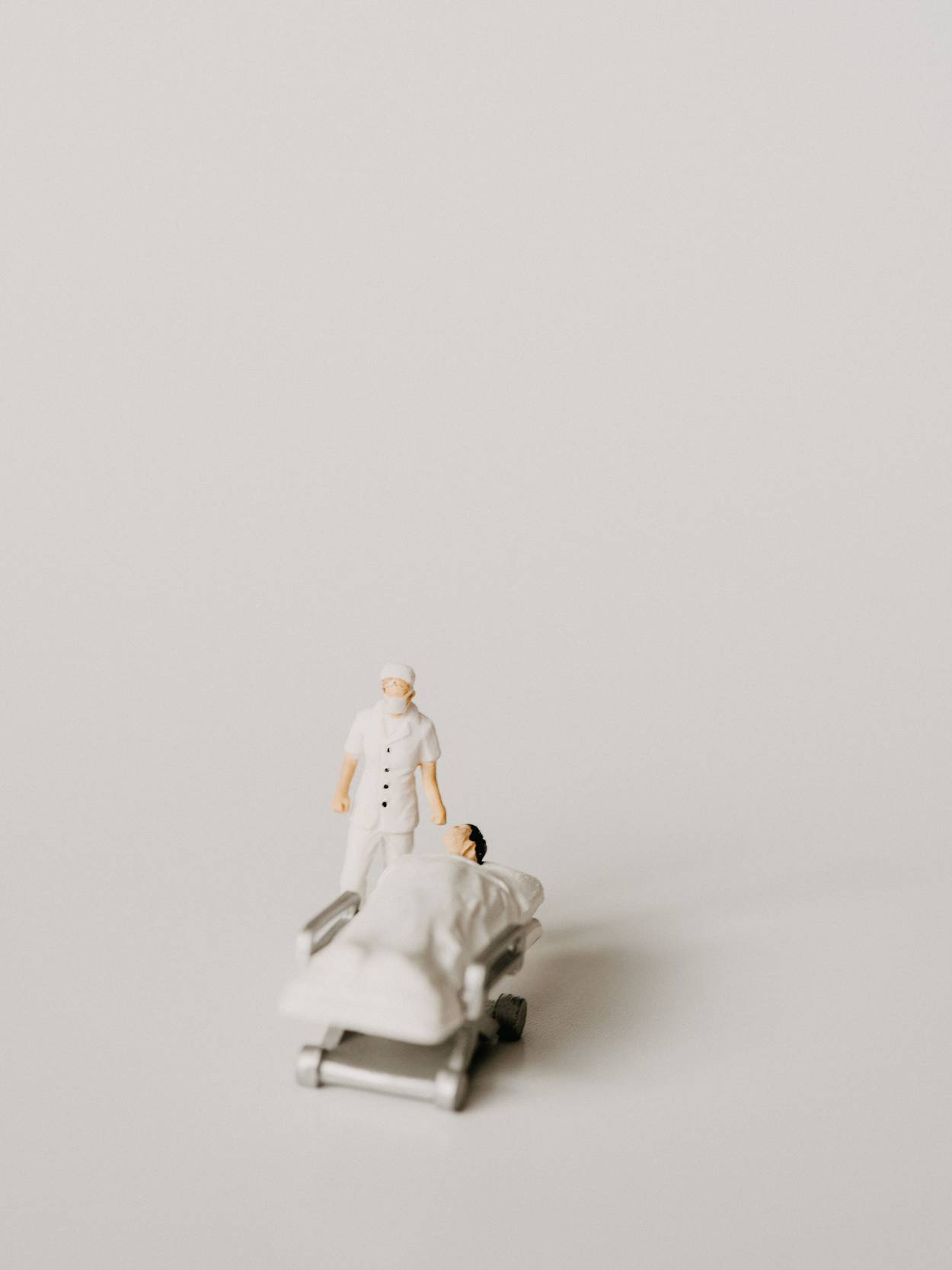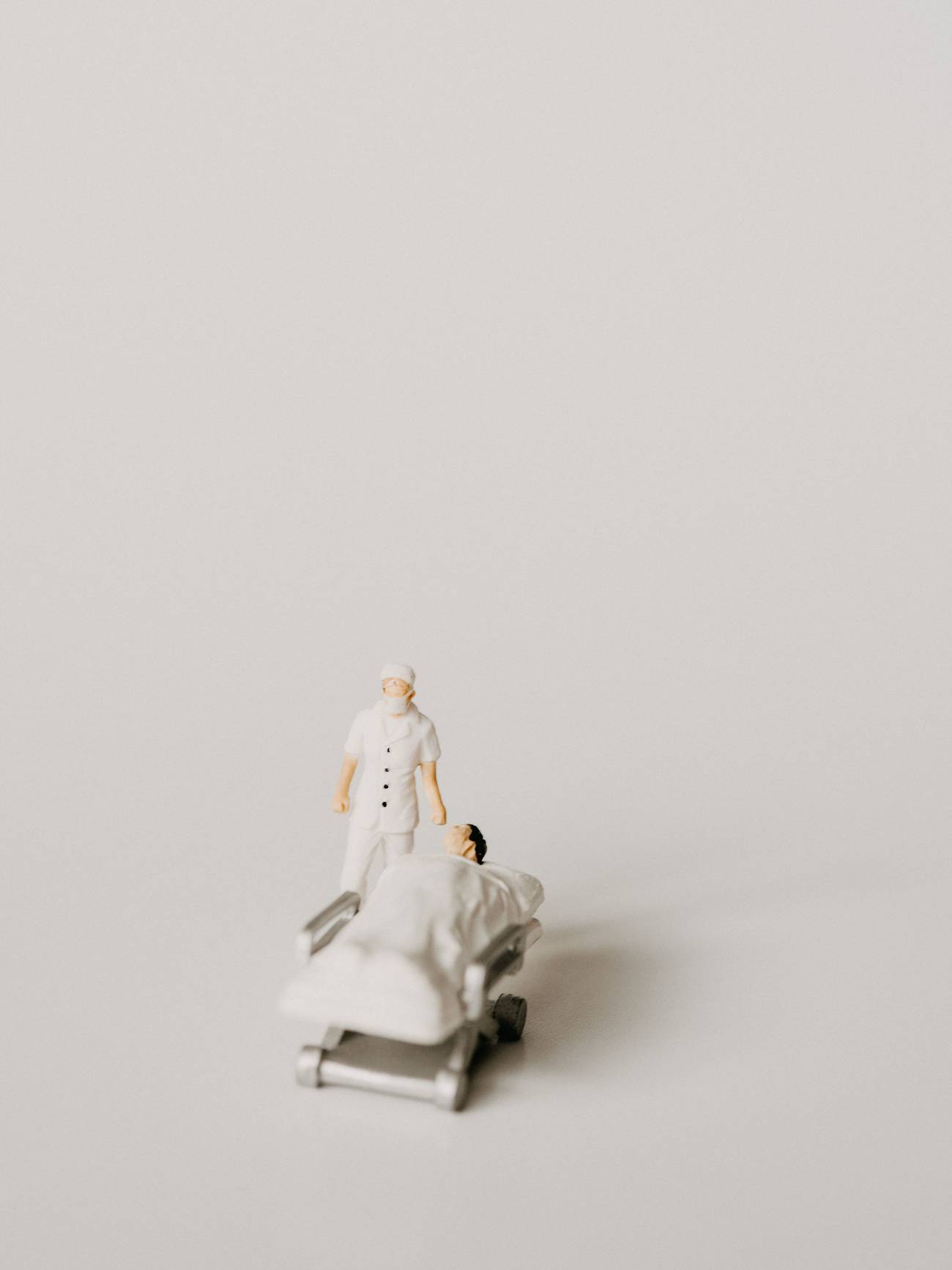My Uterus Tried to Kill Me
How I won that battle. And what I lost—and gained—in the process.




“Your uterus is trying to kill you,” the handsome young doctor told me as I lay in a hospital bed, someone else’s blood pumping through a bag into my veins.
I was the last person in my family who would have expected to hear this news. Two decades ago, my mother and my paternal aunt were diagnosed with ovarian cancer within a year of each other. Only about 1% of women in the general population will get ovarian cancer, but women with the BRCA gene mutation have a 39% to 44% chance, according to the National Cancer Institute. The gene runs in Ashkenazi Jewish families like ours, and also increases the risk of breast cancer. All the women in my family were tested. All had the gene—except me.
My sister would get breast cancer at age 29 because of it, and my cousin a couple decades later. All the women in our family would need to get their ovaries removed to avoid cancer—except me. My doctors told me that my risk for ovarian cancer was equal to that of the average woman, and that I was very, very lucky. Before she died in 2005, my mom reminded me often of my luck. I would get to keep my parts. I didn’t have a clock ticking for having children. I could live my life without fear. I should buy a lottery ticket.
And I did feel lucky. I had my first child at 33 and my second at 39. Neither pregnancy had complications. But now, more than a decade later, the evidence seemed incontrovertible that my parts were trying to kill me, and they would have to come out.
I had been bleeding, off and on, for months since my doctor took me off birth control pills as I approached 50. At first, I assumed my once-irregular periods had returned to their annoying, intermittent ways. My doctor prescribed progesterone, then an IUD. The bleeding receded, but it never stopped. I read up on perimenopause, and every site assured me a woman’s period can get heavy before it stops. It was a nurse practitioner checking me in for a routine colonoscopy who noticed I looked pale and checked my hemoglobin levels. She told me they were low. She asked me if I had felt tired lately. What working mother doesn’t? I hadn’t noticed a change.
Two days after that blood test, I woke up to nonstop bleeding for the first time. My bathroom looked like a crime scene investigation. I asked my husband to take me to the ER, where I learned my IUD went MIA in the carnage, and that I had a fibroid.
About 80% of all women have fibroids, which are benign muscular growths that can cause bloating and discomfort. Mine was the size of a kiwi—normally not an issue, but it was in the uterus’s inner lining, also called the endimetrium. Fibroids are seldom cancerous, and often doctors will just send patients home with medications and keep an eye on them at annual checkups. But in some cases, like mine, the fibroid nestles itself in a problematic location and causes bleeding and pain. Even then, when it has to come out, doctors can remove just the growth or, if necessary, the growth and the uterus. A total hysterectomy is not the only option. But given my family cancer history, I thought, let’s eliminate risk. Edit out the parts I don’t need.
The doctors agreed the fibroid would have to come out, and the hysterectomy was reasonable for making sure it would never return as well as eliminate the cancer risk. (No uterus, no place for fibroids to grow.) But the doctors could not do surgery yet; my hemoglobin levels were still too low. I had received a transfusion in the ER, which bumped me up to about 8.2 grams per deciliter. For surgery, the doctors like at least 9 grams per deciliter. No problem, the nurses said. An iron-rich diet should get you there in six weeks.
I pondered my life without my parts—the ones that usher in glorious life, but also have the power to take it away.
I went home and ate spinach. I had my first burger in decades, doubled up on my meatball recipe, bought soups and canned beans and oysters and even sardines. I met friends in Boston and we rode bicycles 16 miles through Cambridge; I went to Pittsburgh to hear my father read Torah and had cocktails with my best friend. Surgery was still weeks if not months away, I thought. I had time to decide if I wanted a total hysterectomy—which removes the cervix and uterus, but leaves the ovaries—or if I wanted a total hysterectomy with a bilateral salpingo-oophorectomy, which I began to think of as the whole shebang. It means taking out everything: uterus, cervix, fallopian tubes, and ovaries.
My cervix, fallopian tubes, and ovaries were not causing problems. But about 70% of ovarian cancers begin in the fallopian tubes, so I was thinking I was done with them. My cervix was no longer beneficial, either, so I thought it could go. The ovaries were the sticking point. They continue to offer benefits to women through age 70. They provide hormones that lessen menopause symptoms, strengthen brain health, and decrease the risk of heart disease. If my risk of ovarian cancer was truly the same as the average woman, it made sense to keep them. But I never believed that one gene foretold my future. I inherited my father’s forehead, my mother’s legs; my father’s sense of humor and my mother’s belief in the general good in people. Family history had to mean more than one mutation. My doctor told me we still had time to decide.
Until we didn’t. Three weeks after the first transfusion, I was back in the hospital, again weak, needing several more liters of blood. As the young resident said, my uterus was trying to kill me. No amount of spinach could combat the bleeding coming from the parasite-host fibroid-uterus relationship. My doctor said she would take out the uterus, fibroid, cervix, and fallopian tubes. The ovaries? I called for a vote; two doctors and the med student tagging along said to do it; one resident said I ought to consider the “brain health” benefits of leaving them in. Not to mention, she reminded me, I’d go straight into menopause without them. I told her, “My brain will be no good to me if my body is being ravaged by cancer.” Everyone nodded. It would all come out.
As the nurse wheeled me to the operating room, I thought about my mother, a bright-side computer programmer raised by two melancholy parents who escaped the Holocaust but lost almost everything to it. I remember her telling me when she first became sick: “Don’t be scared.” I joked around with the nurses about the lack of a need for a pregnancy test (“trust me, it’s not possible”) and with the anesthesiologist about the excellent sleep I was looking forward to post-surgery. But in truth, I pondered my life without my parts—the ones that usher in glorious life, but also have the power to take it away.
I thought about what Marg Helgenberger’s character asks Julia Roberts in Erin Brockovich as cancer destroys her insides from the community’s polluted water supply: “You think if you’ve got no uterus and no breasts, you’re still technically a woman?” Would I feel like less of a woman without my reproductive organs? I remember my cousins telling me about all the women in our family who died mysteriously before the Holocaust, skinny women whose bellies became swollen and then they died. Did their ovaries betray them? No one kept any records. I know my mother would tell me to do everything I could to stay alive for my children, even if that meant losing some of what made me a woman. She died when I was nine months pregnant with my oldest, who is now 17. She only met one of her eight grandchildren.
I woke up hours later, a few small incisions in my belly and intense pain that would, in a few days, feel like I had overdone it on the crunches. My doctor and the residents told me the fibroid was more like the size of a squash, and it had taken over my confused uterus, which was essentially trying to give birth to it. They showed me pictures. It looked like an oversize knish. Or a turducken: a fibroid inside a uterus inside a pelvis.
When the doctors took out my parts, they gave me something I didn’t know I needed. My freedom. I will never again have to worry I will die of ovarian cancer. My uterus tried to kill me, but my doctors put down the rebellion and stopped the bleeding. I may not have gotten to keep my parts, but I am a lucky woman nonetheless.
Rona Kobell is a longtime environmental journalist based in Baltimore.